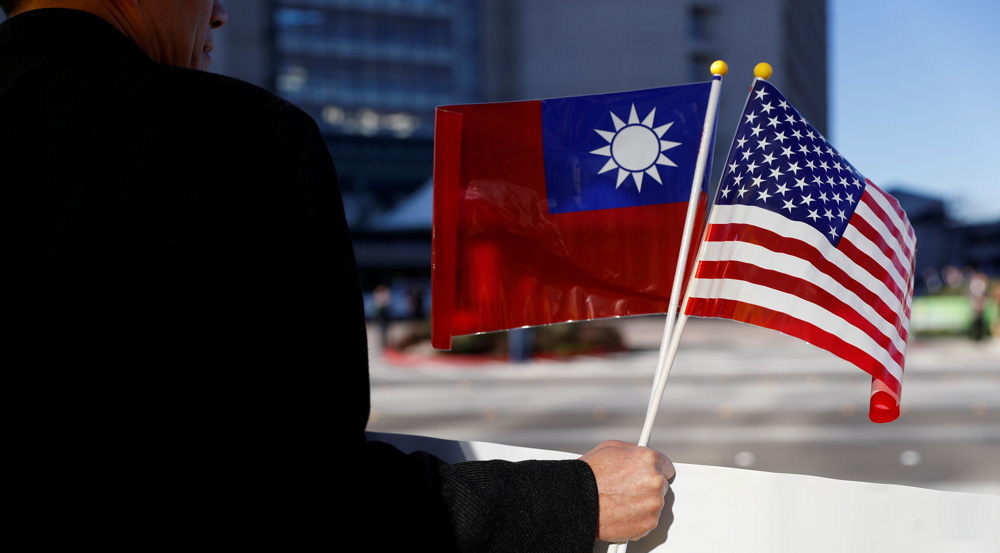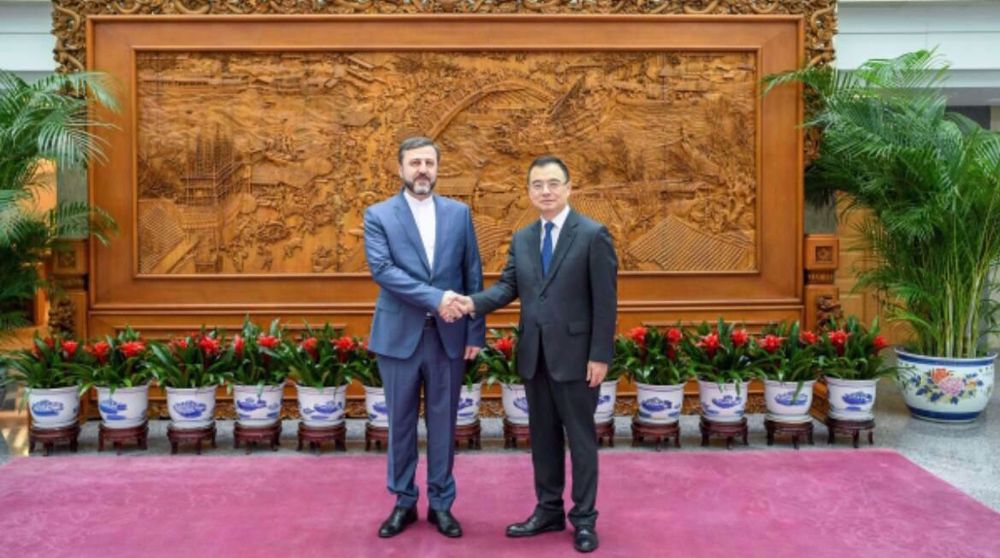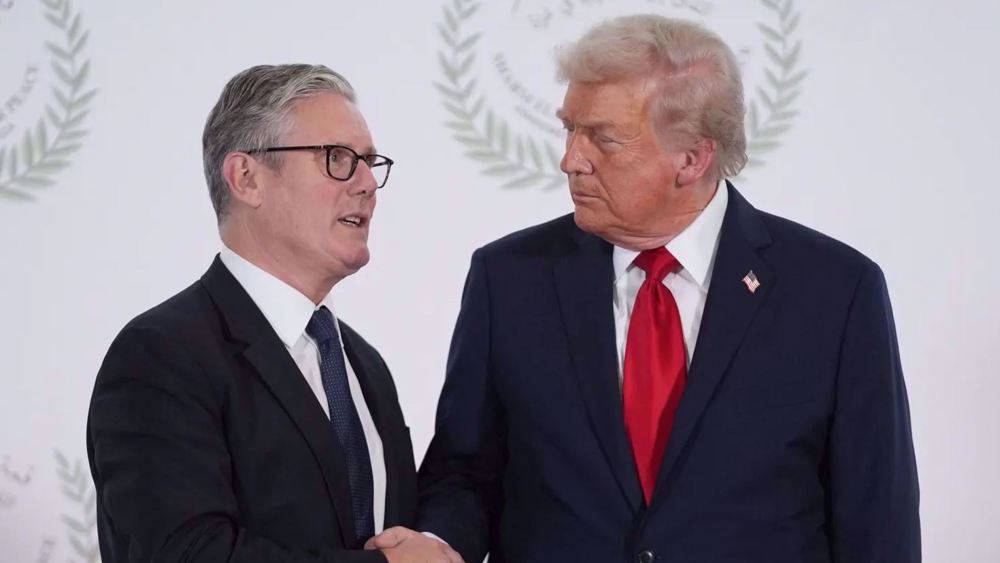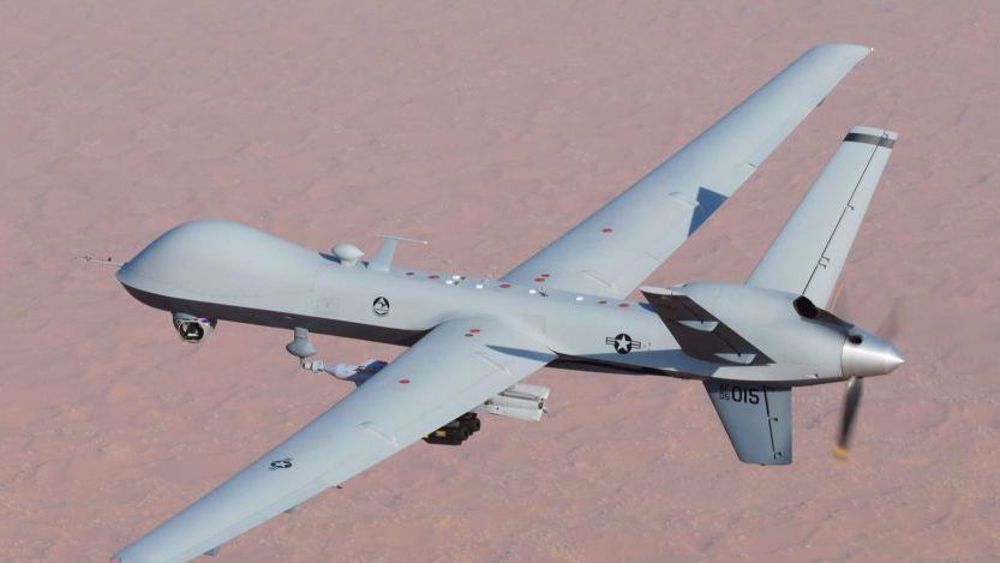US navy admiral visits Taiwan, deepening divide with China
A senior US naval official, with responsibility for military intelligence in the Asia Pacific, has made an undercover visit to Taiwan in an apparent last-ditch effort by the outgoing administration of President Donald Trump to strengthen relations with the self-ruled island -- a move which is certain to outrage China.
The top military intelligence official at US Indo-Pacific command Navy Rear Admiral Michael Studeman visited Taiwan, Reuters reported citing two sources, on Sunday.
Taiwan's Ministry of Foreign Affairs said it welcomed the visit but would not give any details "since this itinerary has not been made public."
The Pentagon also declined to comment on the visit.
China reacted to the reported visit, reiterating that it “resolutely opposes” any form of exchanges between Taipei and Washington.
“The Chinese side will, according to how the situation develops, make a legitimate and necessary response,” Foreign Ministry spokesman Zhao Lijian said on Monday.
He also expressed displeasure with the signing of a memorandum of understanding on economic exchanges following a meeting between Taiwanese and US officials in Washington, on Friday.
A report on Friday suggested that officials in Taipei and Washington were in talks to schedule a three-day visit to the island by US Environmental Protection Agency administrator Andrew Wheeler, next month.
Taiwanese Prime Minister Su Tseng-chang confirmed the report, saying Wheeler “will come to Taiwan, to have bilateral discussions on international cooperation on environmental protection issues.”
This would be the third such visit to the island by US officials, this year.
In August, Washington sent Health and Human Services Secretary Alex Azar to Taipei. A month later, Undersecretary of State Keith Krach visited the island.
China reacted with anger on both occasions, describing them as a political stunt aimed at promoting Taiwan’s attempts to gain independence from the mainland.
These official visits deteriorate the already-troubled relations between Washington and Beijing, which are locking horns over a range of issues, including the coronavirus pandemic, trade, the South China Sea, Hong Kong and Tibet.
China, which maintains sovereignty over self-ruled Taiwan, has constantly warned against any official exchanges between Washington and Taipei.
Under the “One China” policy, nearly all countries worldwide — including the US — recognize Beijing’s sovereignty over Taiwan, but under the Trump administration, the US has been courting Taiwan in an attempt to irk Beijing.
In recent controversial remarks that sparked outrage in China, US Secretary of State Mike Pompeo even refused to acknowledge Beijing's sovereignty over Taiwan, saying that the island “has not been a part of China.”
China in response warned Washington of “resolute counterattack” measures, if it kept undermining Beijing’s core interests.
Washington, nevertheless, continues to remain the island’s largest weapons supplier and an avid backer of Taiwan’s secessionist president Tsai Ing-wen.
The Tsai government signed a 62-billion-dollar deal earlier this year to purchase F-16 fighter jets from the US.
The Trump administration has also been lately pushing for the sale of seven large packages of weapons to Taiwan. The packages, including long-range air-to-ground missiles and highly advanced drones, would be one of the largest weapons sales to the self-ruled island in recent years.
Norwegian ambassador resigns over expanding Epstein-linked scandal
Russia will not launch attack on Europe unless struck first: Lavrov
Israeli forces kill three Palestinians, including teen, in raids across Gaza
Israel finalizes execution plans for Palestinian abductees after Knesset vote: Report
VIDEO | Press TV's news headlines
VIDEO | Pakistan mosque attack in Islamabad sparks protests in Kashmir, Kargil
Hamas condemns Israel's 'fascist settler-colonial' project aimed at annexing West Bank
Iran's Greco-Roman wrestling team wins championship title at Zagreb Open 2026















 This makes it easy to access the Press TV website
This makes it easy to access the Press TV website